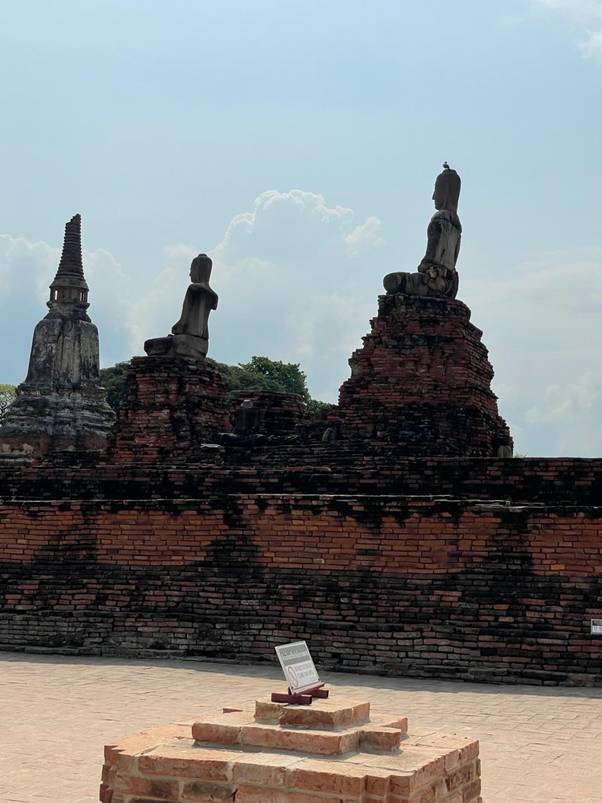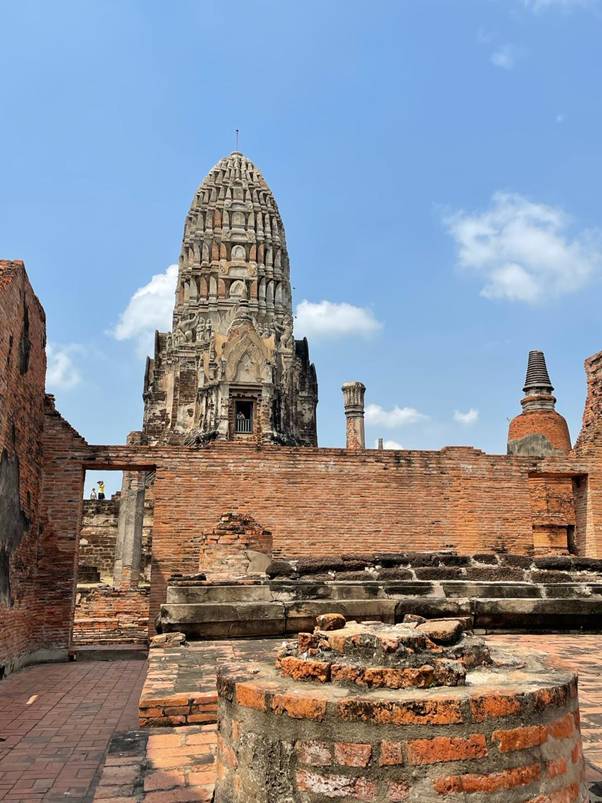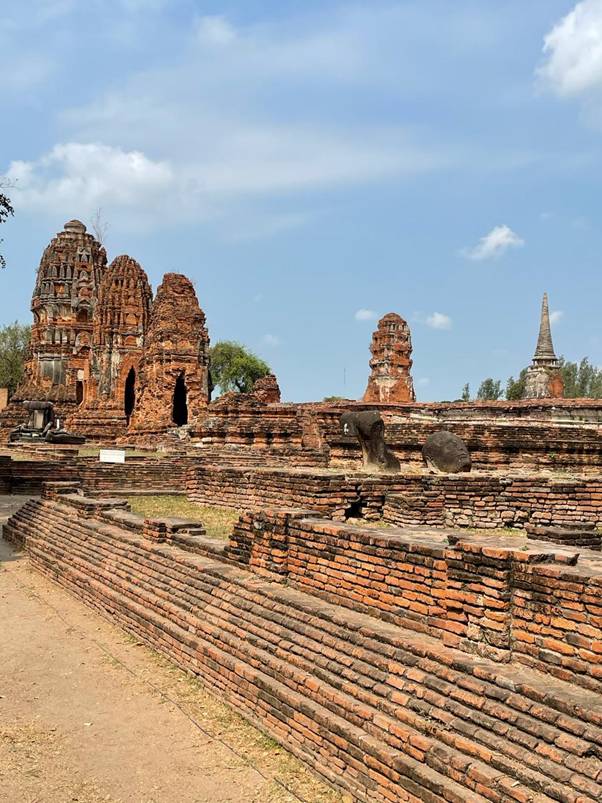
The archaeological site of Ayutthaya in Thailand
Ayutthaya: The ancient city of Ayutthaya in Thailand is named after the birth city of Lord Ram in Ayodhya.
Ayutthaya was founded in 1350. It was the second capital of the Siamese Kingdom after Sukhothai. It flourished from the 14th to the 18th centuries, during which time it grew to be one of the world’s largest and most cosmopolitan urban areas and a centre of global diplomacy and commerce.
Ayutthaya was strategically located on an island surrounded by three rivers connecting the city to the sea. This site was chosen because it was located above the tidal bore of the Gulf of Siam as it existed at that time, thus preventing attack on the city by the sea-going warships of other nations. The location also helped to protect the city from seasonal flooding.
The city was attacked and razed by the Burmese army in 1767 who burned Ayutthaya to the ground and forced the inhabitants to abandon the city. The city was never rebuilt in the same location and remains known today as an extensive archaeological site.
Once an important centre of global diplomacy and commerce, Ayutthaya is now home to archaeological treasures, characterized by the remains of tall prang (reliquary towers) and Buddhist monasteries of monumental proportions, which give an idea of the city’s past size and the splendour of its architecture.
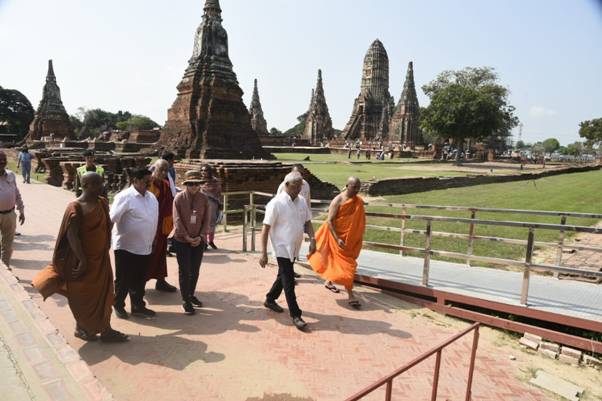
Governor of Bihar Rajendra Vishwanath Arlekar today visited the historic Thai city. He is heading a 22-member Indian delegation that took the holy relics of Lord Buddha for a 26-day exposition in Thailand.
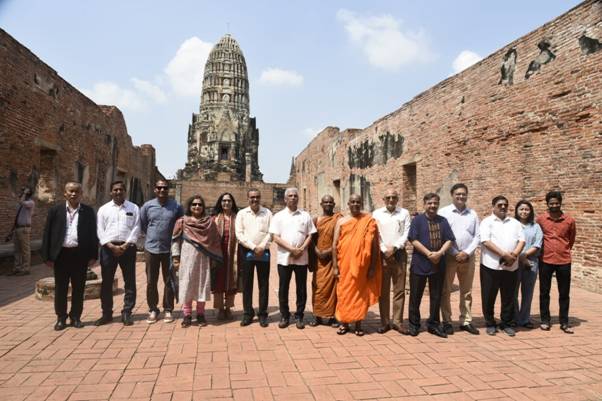
Speaking on his visit to Ayutthaya, Arlekar said that the city depicts the deep cultural and historical connection between the Indian and Thai civilization which has been preserved by the people and Government of Thailand. He also mentioned that being the governor of the state of Bihar which is the home to several Buddhist heritages and Bodh Gaya, it was an hour for him to get an opportunity to visit Ayutthaya, especially at a time when the Ram Temple has been inaugurated in Ayodhya city in India. He said that these ancient temples, palaces and ruins not only give a deep understanding of the rich history and culture of Thailand but also help in the understanding of the depth of the cultural roots and heritage of modern Thailand.
The Governor also said that measures should be taken to ensure that the people in India are aware of this cultural connection and the spread of Indian culture around the world.
– global bihari bureau


